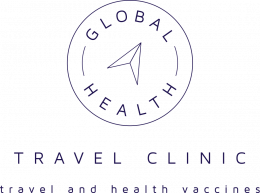The Risk
An increase in cases of Yellow Fever have been reported from December 2017 in Brazil, particularly in São Paulo state.
Cases of yellow fever in unvaccinated travellers who travelled to risk areas in Brazil have also been reported recently in Brumadinho in Minas Gerais state, Ilha Grande in Rio de Janeiro state and Ilhabela in Sao Paulo state. Some deaths have been reported.
Advice for travellers
Yellow fever is spread to humans via the bite of an infected mosquito. You should take insect bite avoidance measures, day and night, when visiting countries with a risk of any disease transmitted by insects.
If you are travelling to areas of risk of yellow fever in Brazil both mosquito bite avoidance and vaccination are recommended for your personal protection.
General Insect bite prevention
Mosquitoes, certain types of flies, ticks and bugs can cause many different diseases. e.g. malaria, dengue fever, yellow fever. Some bite at night, but some during daytime so protection is needed at all times.
Bite Avoidance – Fore Yellow Fever follow avoidance at all times.
- Covering up skin as much as possible, especially if going out at night, wear loose fitting clothes, long sleeves, trousers or long skirts.
- Use insect repellents on exposed skin. Picardan 20% or DEET 50% products are the most effective.
- If using sunscreen always apply first, followed by an insect repellent spray on top.
- If room is not air conditioned, but is screened, close shutters early evening and spray room with knockdown insecticide spray.
- Electric insecticide vaporisers are very effective as long as there are no power failures!
There is no scientific evidence that electric buzzers, savoury yeast extract, tea tree oil, bath oils, garlic and vitamin B are effective.
For further information visit https://travelhealthpro.org.uk/
